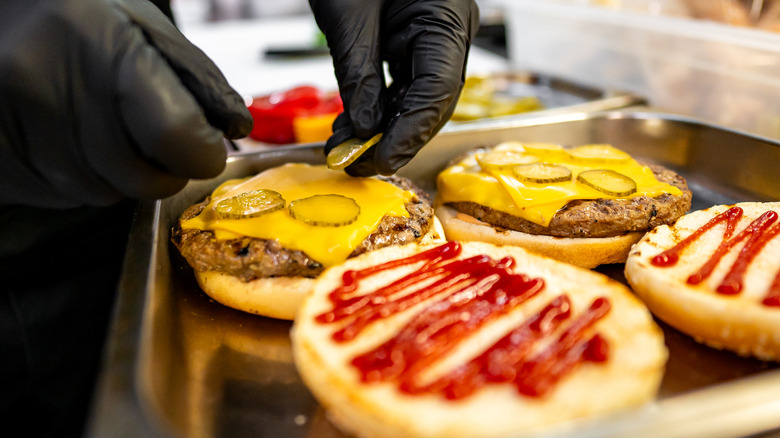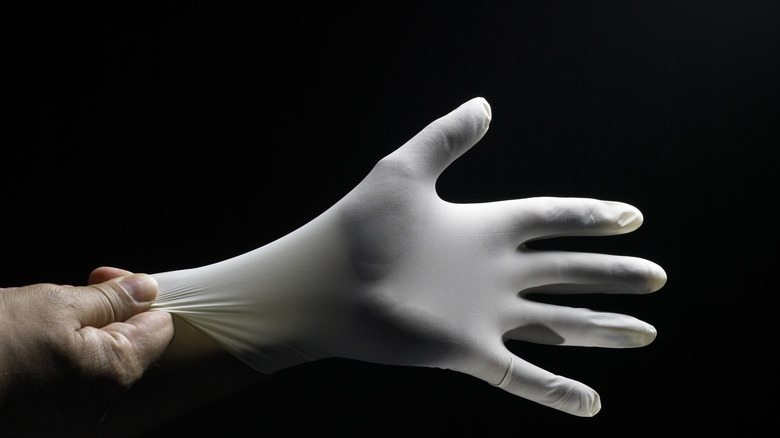Are Fast Food Workers Required To Wear Gloves? It Depends
Food safety is a high priority when it comes to eating out, so it's no surprise that some diners are put off by watching fast food workers preparing meals without wearing gloves. According to the CDC, an estimated 48 million people contract a foodborne illness each year, with approximately 3,000 people dying as a result, and the risk is understandably on everyone's mind when they watch someone handling food.
There are plenty of ways to maintain food safety, from using multiple cutting boards to cooking foods to the right temperatures, but one of the most common things people look for when someone else is doing the cooking is gloves. But before you jump to report a fast food worker for not wearing gloves, though, it is important to know that not wearing them isn't necessarily against the law.
The rules about using gloves in fast food are not the same across the board, and there are no federal laws against not using them. While the FDA recommends that food service workers use single-use gloves when handling food, different state laws have different requirements, however even those leave room for gloves to be avoided. In some states, like New York, workers who create ready to eat food (such as fast food) are prohibited from using direct skin contact while prepping food. Wearing gloves, however, is just one of the ways this can be accomplished, with other methods like using tongs, spoons, or deli paper being acceptable.
Gloves don't always mean safe
In reality, gloves can create a false sense of security, both for customers and workers. Workers might mistake putting on a pair of gloves for a fail-safe when it comes to food prep, putting them on and leaving them on throughout their shift as they move from task to task. But this simply takes whatever bacteria or germs that get picked up in one place and transfers them to another, passing along the potential for customers to get sick. One of the most powerful tools against foodborne illness is proper handwashing, and gloves don't replace that. In fact, wearing gloves has actually been shown to reduce handwashing compliance.
As long as food workers are following proper food safety guidelines and good practices, the risk of foodborne illness will be minimized. Some companies enact strict rules, like McDonald's, which requires employees to adhere to a strict handwashing schedule, using different sets of employees for different functions, such as handling money and prepping food, and having color-coded gloves for employees who handle raw food to mitigate cross contamination.
Issues still arise though. Soft serve machines in fast food restaurants are a common source of problems if they aren't cleaned or maintained at the right temperature. It's important that fast food workers, along with their home cook counterparts, are keeping surfaces clean, avoiding cross contamination, washing their hands, and following safe cooking and storage techniques.

